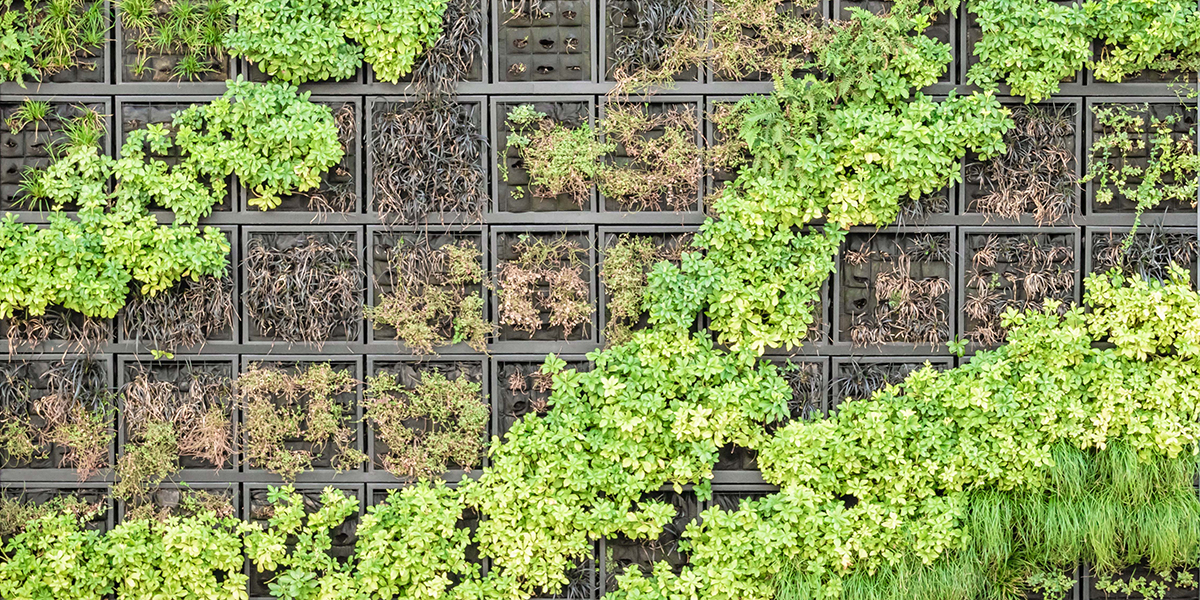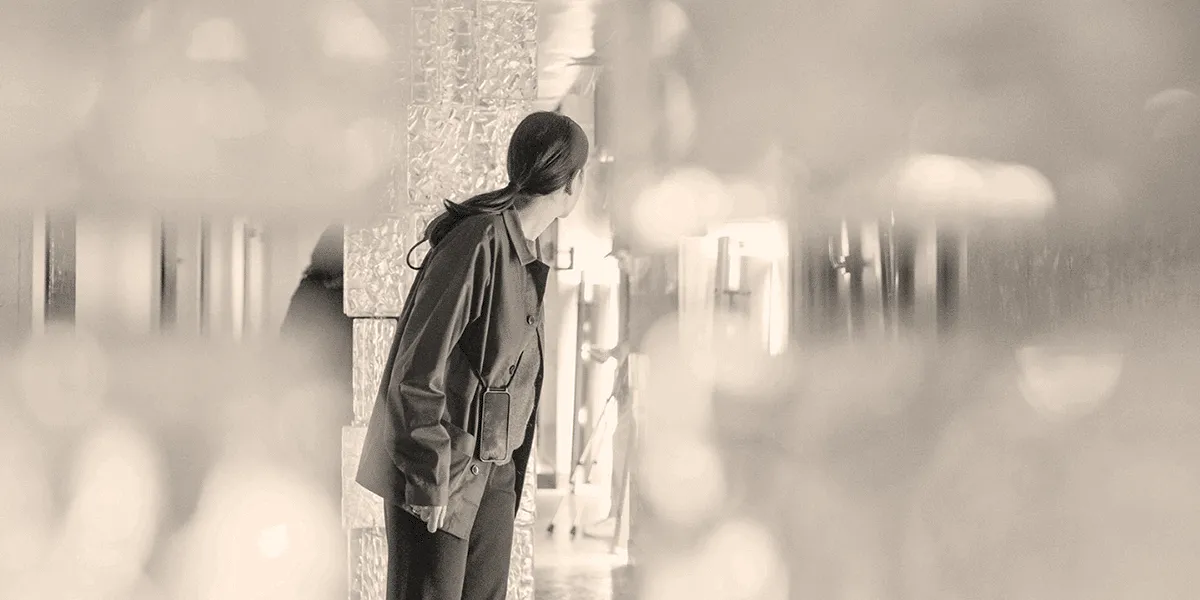Looking for Food Heroes
After having interviewed German art historian, Roland Guenter, Salvatore Giannella went on to interview 44-year old Claudia Laricchia, Climate leader and manageress at the Future Food Institute.
Dear Claudia, I'm meeting various experts in sustainable development to make this mythical goal less evanescent thanks to concrete examples and useful advice.We already know each other (in fact, we are on informal terms) but I would like to give the reader some essential information about you. You were born in Foggia 44 years ago.You graduated in political economy at the University of Siena. You were mesmerised by Mr. Obama when you met him at Milan's Expo (“He changed my life when he said: climate change is at the tip of your fork”).You are head of the Institutional Relations and International Agreements Department of the Future Food Institute.You were Climate Shaper (i.e. climate and food activist) and Climate leader for The Climate Reality Project promoted by Al Gore (former vice-president of the United States and Nobel Prize winner).You've travelled twice around the world to meet Food Heroes, FAO's name for those who take positive action for change and to train very young, worldwide Green Economy agents.This experience resulted in you receiving the well-deserved “Lampadiere dell'ambiente” award from the Associazione Gambrinus Mazzotti, based in Treviso, as an important figure for new, concrete, sustainability projects. What are the most important, real-life experiences that made a deep impression on you and that can be replicated?Take us on a Grand Tour in sustainability please.
We at the Future Food Institute are convinced that sustainability will give us the energy to start up again, which is why we have set out with the aim of training professional figures and multidisciplinary teams capable of acting quickly to mitigate the climate crisis and to change habits and economic, behavioural and social models by 2030 (the decade of action set to achieve the 17 sustainable development goals of the United Nation's 2030 Agenda). I hope you noticed that I used the verb act, and not talk. Our meetings and books regard actions in the fields of food innovation, of the proteins of the future, of circular economy and of tomorrow's cities (we estimate that 70% of the world's growing population will live in urban areas by 2050 and that these will become our society's main production and consumption centres). These actions include some of the most interesting and useful stories. For instance, I remember the incredible experience of Stephen Ritz; a science teacher who took up vertical farming in New York's The Bronx, the poorest county with the largest community of emigrants in the United States.
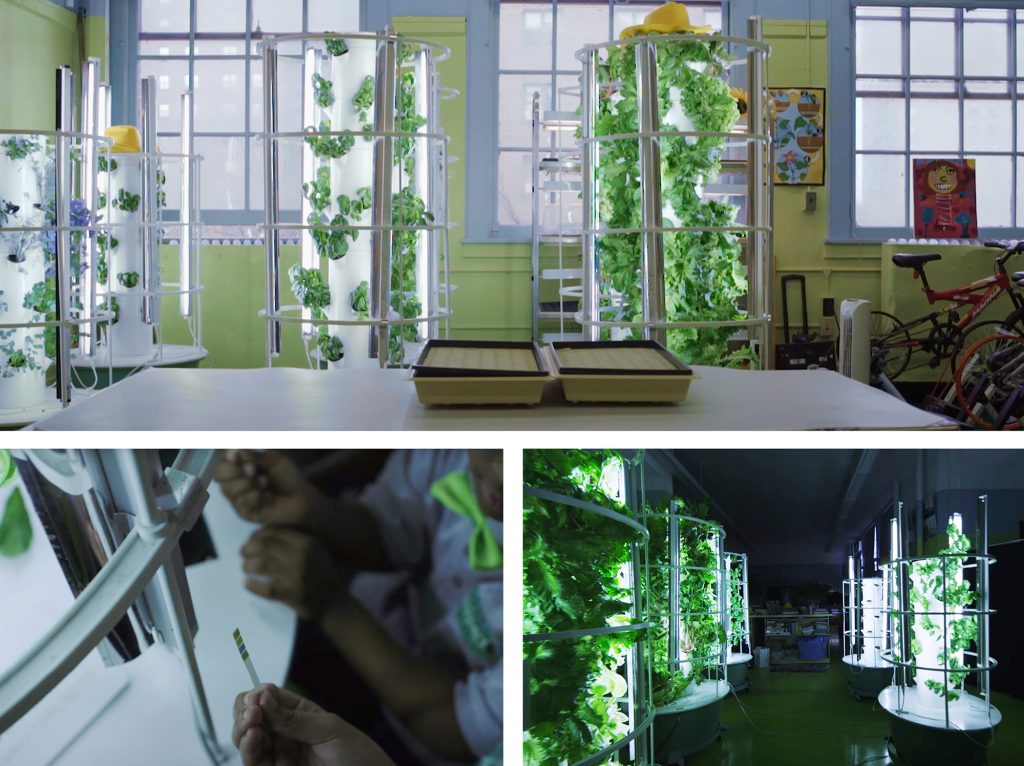
I've heard about this teacher who has become an icon of sustainability and of social redemption. His story is exemplary in many respects. Can you summarise it for us?
Stephen created a non-profit organisation (he defines himself as CEO, Chief Eternal Optimist) that contributes to creating fair and resilient communities through agriculture, healthy food and by promoting sustainable lifestyles. He puts two “molecules” together: patented technology (by which it is possible to grow vegetables and plants in unused classrooms at school, but even on walls and roofs, saving 95% of the water normally utilised in traditional farming) and educating the children that will be tomorrow's farmers. He redeveloped a poor metropolitan area by planting urban vegetable gardens and green oases amidst the cement. All his students successfully graduate from school, go to college or start a career. This is an exceptional result when compared with the norm in this rough borough; in fact The Bronx is characterised by poor school results and high unemployment and crime rates.
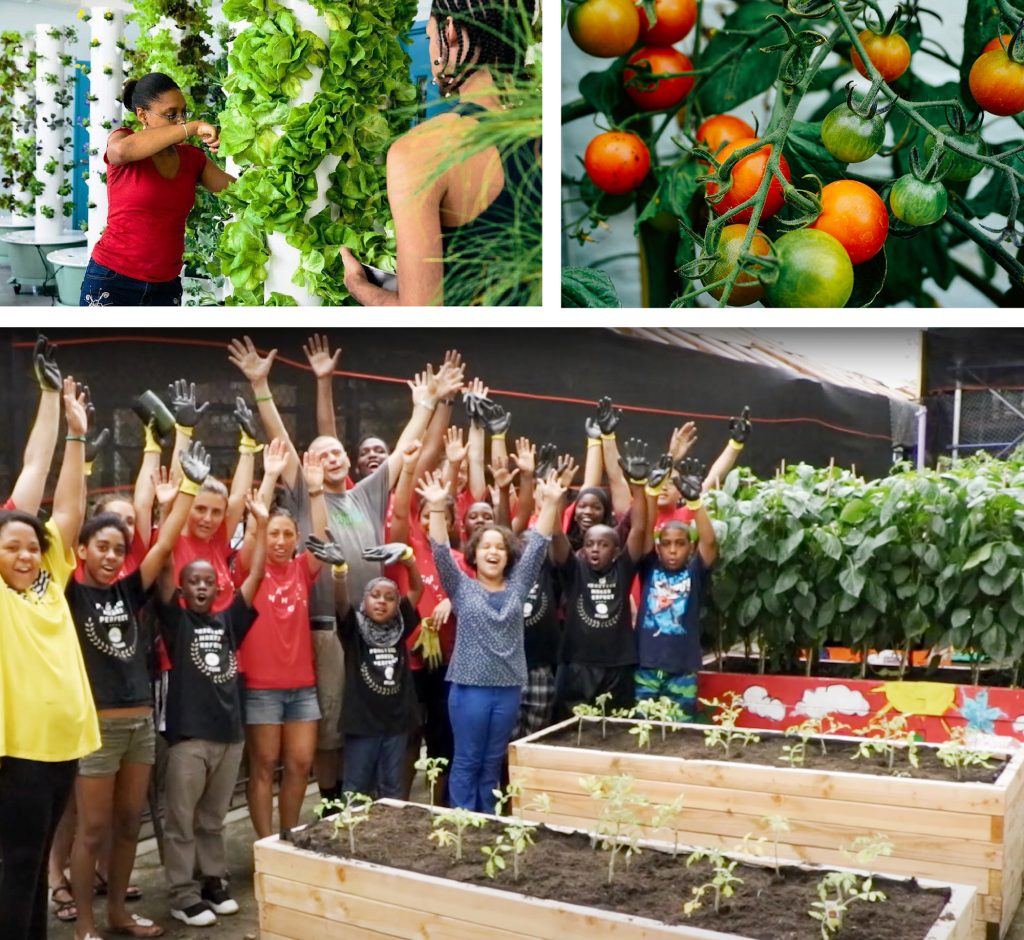
Photo credit: Dan Gold | www.greenbronxmachine.org
Mr. Ritz and his students developed the Green Bronx Machine, the educational programme that makes it easy to cultivate extremely high-quality produce inside schools. The young people (divided into groups of their favourite vegetables such as broccoli, carrots, courgettes or mint instead of into football or basketball teams!) personally take care of the whole processfrom planting to harvesting. The produce is either eaten at school or taken home. This also helps them learn the history, geography and biology of plants (specific plants become the protagonists of a story which stimulates the attention and curiosity of the youngsters) and involves their parents – who learn how to choose healthy food and cook it with their children – in the project. In a community with high child obesity, diabetes, heart disease and food insecurity rates, Green Bronx Machine promotes Mr. Ritz's invitation to “roll up your sleeves, gets your hands dirty and grow something extraordinary” and his idea that healthy communities grow out of healthy students.
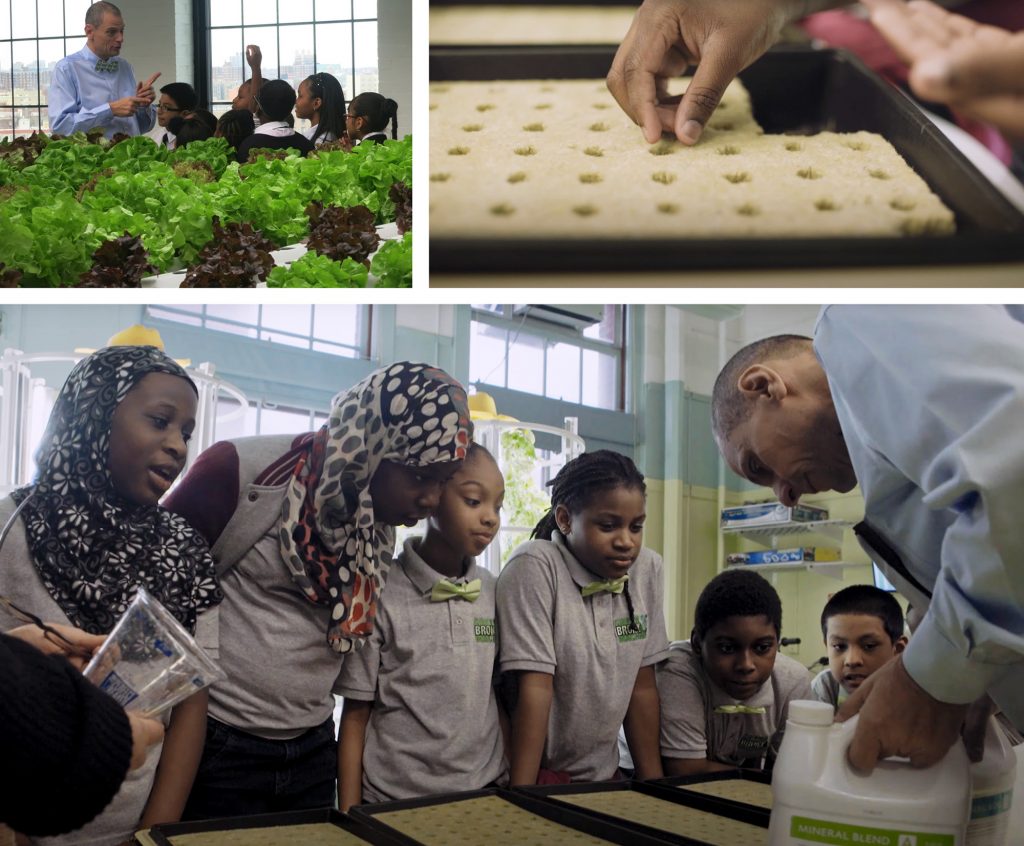
Photo credit: film by Aaron Kodz “Green Bronx Machine-The power of a plant”
So, a project that was initially meant to be an alternative after-school activity has become an integrated youth education model.
Mr. Ritz and his students, who now number more than 3,000, have managed to create a hundred gardens in the heart of New York. They have received lots of awards and travelled all over the country. They have been visited by the mayor and by Congress representatives and have even been invited to the White House where they met one of the President's chefs, Bill Yosses, who decided to contribute his experience to schools by joining Mr. Ritz's team. Since the project started, school attendance has gone up from 40% to 93% which has resulted in an improvement in the participation and behaviour of students. Considering just the first year, there was a 45% increases in science exam passes at schooland today 100% of the students pass their final examination. More than 6,000 schools all over the world have adopted the Ritz programme.
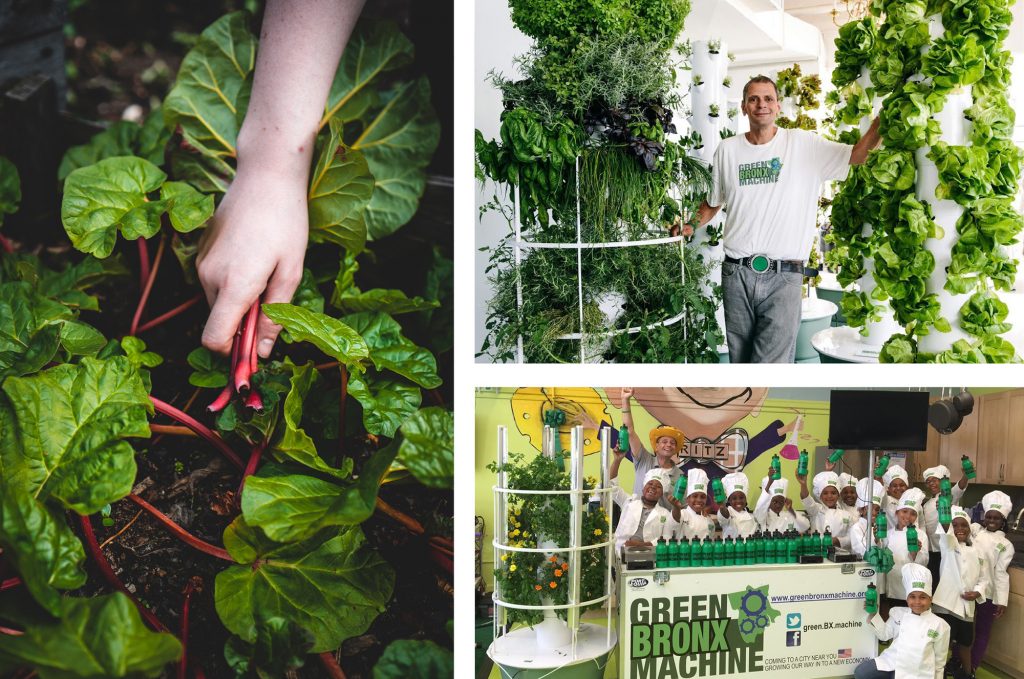
Photo credit: Jonathan Kemper | ww.greenbronxmachine.org
Mr. Ritz and his method have also spread to Italy. A year ago, the Golinelli Foundation and the Municipality of Bologna interviewed him for the Good for Food project, which won the Sustainable and Supportive Public Administration award. The invitation was to prefer local, seasonal food with a low energy impact as well as green transport: this is because giant leaps have been made in terms of energy savings by new-generation kitchens that employ friendly technologies favouring exceptional savings, but if the food comes in from other continents – with a high energy footprint – there is a real risk of nullifying the advantages gained from using smart kitchens.
Of course, the entire food supply chain should be sustainable, from the water to the produce and from packaging to transport. In other words, we must find a way to resolve the malfunctions that result in the food chain contributing to greenhouse gas emissions by 30%. It must also be stressed that, just like most sustainability sectors, we already have universally-acknowledged solutions. Scientists are busy confirming ecological transition data. I should, ideally, be on the scientists' side but I would like to warn you of a danger: the sound of their words is so loud now that it has almost become noise pollution. What I mean is that the scenario described by the scientific world has been illuminated by important and shared data for years. It is imperative to act now, and to do so quickly, without repeating the same words over and over again. I would go to the extent of saying that sometimes words can become the most dangerous fossil source, making us waste precious time.
Let's go to Europe.For example, I've heard of Dutch scientists who have created the first type of artificial meat that doesn't require animal farming or slaughtering. What are your thoughts about this?
You're talking about the laboratory hamburger created by Professor Mark Post. This cultured meat was produced from pig stem cells nourished by foetal horse serum. The results are thin strips of limp, artificial meat with a pale colour due to the lack of blood. Professor Post and his team are working on it to give it a bit of colour. Its appearance is not the only detail that needs adjusting though, because this cultured meat has an exorbitant cost: 200 thousand Euros for one hamburger. Obviously, it must become more affordable but I think there will soon be interesting novelties in this field: just think that actor, Leonardo Di Caprio, who has always been involved in environmental protection, has chosen to invest in a company that produces completely plant-based “meat” that actually tastes like meat. And in Italy, plant-based meat has even been distributed in the land of tortellini: the gastronomic journey of plant-based hamburgers by the Well Done restaurants belonging to Andrea Mangelli, co-founder of Future Food started from Bologna.
Let's move from America and Europe to Africa and Asia.
I haven't been to Africa yet, that will be my next destination. On the other hand, the most intriguing story I encountered in Asia was in Japan. A company there patented a method that lets us save two of our most precious resources: water and soil. This method was fine-tuned by professor Yuichi Mori and entails cultivating plants indoors at a controlled temperature and light using a hydrogel consisting of a polymer film. This hydrogel can save 90% of the water usually used to grow vegetables. But that's not all. The gel also protects the plants from external agents, making pesticides unnecessary. Due to its specific characteristics, this method can be employed in barren areas of the Earth or where pollution and the deterioration of the environmental make the soil unfit for use. It has already been used to reclaim polluted farming areas in north-east Japan and in the desert of the United Arab Emirates.
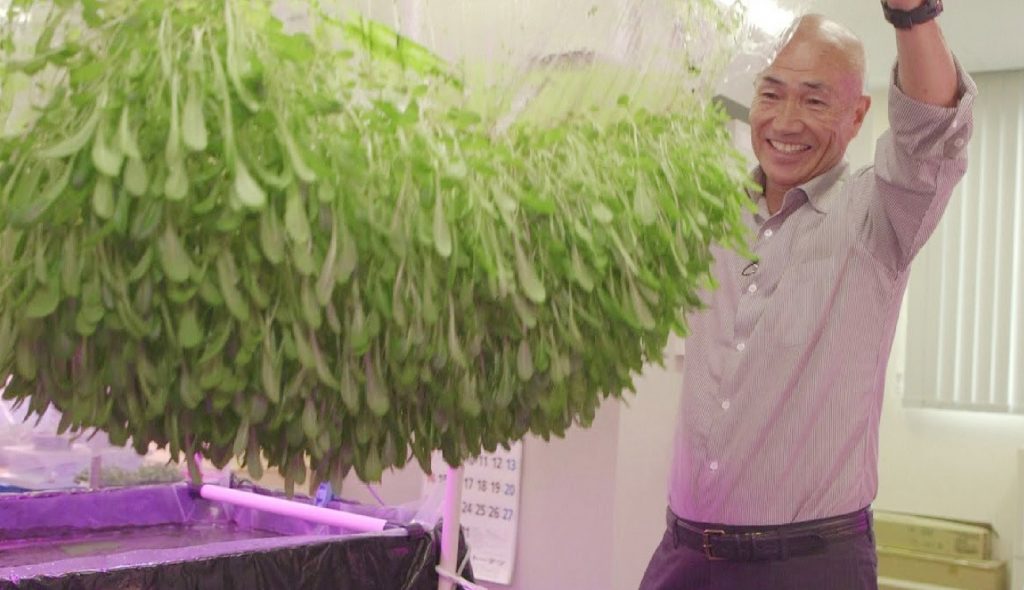
Have you ever tasted any of this produce?
Yes, I remember having eaten an excellent tomato salad. The tomatoes were even sweeter than those I ate as a child in the Apulian plateau, and slightly smaller too, like Pachino cherry tomatoes. But they were very good and they even won a UNIDO ITPO Italy award in 2019 in collaboration with Future Food. The producers came to Rome to pick the award up at Exco2019.
You just introduced Italy into our conversation.This country is the last leg of our Grand Tour.
We Italians are quite behind in this regard. We are paying the price of the misunderstanding of our post-Expo in Milan leadership. Food innovation has remained a mere illusion, to say it using the title of the film Nothing Underneath. In my opinion this is a wasted opportunity. The second misunderstanding regards startups: instead of being a real open innovation,the entire startup circus has just been a marketing operation, often detrimental to the dreams of young people. Let's take a look at the numbers: how many startups have been registered in Italy? And how many of these are dedicated to food innovation? How many events involve startups? Strangely enough, there are more people wanting to promote startups than those who actually set one up. Food innovation is still a pipe dream in Italy. I know I will attract criticism but I am saying what I actually believe. I would like to be contradicted by the numbers, in which case I would be ready to change my mind.

I must say that I did notice some signs of vitality at a recent seminar on freshwater that I coordinated in Treviso. Nevertheless, a creative and ecologist ante litteram Friulian businessman drew our attention to a risk regarding the ecological transition: in brief, he reminded us that the economic system is like a train track on which the train of our economy and of our society is running. But whose task is it to give the tracks a new direction?Do you think his pessimism is founded?
I don't want to be too negative so I will tell you a story I really love. It's the story of Giorgia Pontetti, born in 1977, a very active aero spatial engineer who designs and patents futuristic machines in her company in Lazio, ranging from 3D printers for healthy food that can work using edible ink, to sterile, hydroponic greenhouses. She aims at making produce with a high nutritional value, not only for industrial but also for household or private use, which can be placed in schools and offices to replace typical vending machines. I can tell you where you can find the redeeming light that leads you out of this black tunnel of pessimism: in training. Nothing will change without the skills acquired through training. If you haven't been trained, how can you know which new materials to use? What direction you should move in? What plan you should prepare? How much an innovation costs? Where you should buy it? If you're not trained you will never give a new direction to those ecological transition tracks. In short, the really decisive key for Italy is training.
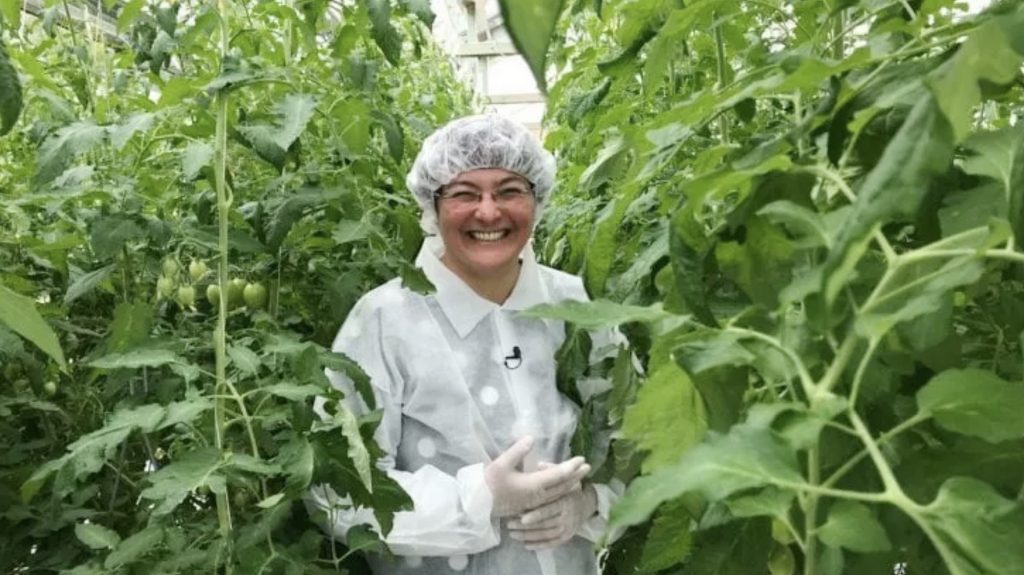
Not much is said about it but this is a crucially important topic.
The world – and I'm talking from personal experience – is full of thousands of organisations involved in making public opinion more aware of climate change and they work to make the awareness of the importance of the climate more widespread, but all this should have been done years ago. You yourself wrote about the Green New Deal for Italy in the Airone magazine you used to direct forty years ago. That information was important in the past, beyond visionary. But in 2022 everyone can see that the king is naked. In my role as an activist partner of many environmental organisations I often tell my colleagues: “Guys, raising awareness is fine, but the times have changed. This is no longer the priority. People already know that change is necessary, they understand that. After Greta Thunberg repeatedly shouted it out, even my grandmother came to understand the message. We all understand it, at all levels. We may not be acting as urgently as this awareness requires, but we do know now”. Which is why training prepares for action. That's what's missing. We need to be trained on carbon compensation, on sustainable finance, on the regeneration of farming, on environmental certification, on energetic conversion… But who does that today? Unless these changes are made, the tracks of the economic train will keep running in the same direction.
The matter of training brings to mind the memory of a village on the Tyrrhenian coast I know is dear to your heart: Pollica, in the Cilento territory of Salerno, the cradle of the Mediterranean diet, where children meet fishermen and farmers on their way back home from school…
The Pollica boot camp, invented and implemented by Sara Roversi (president of the Future Food Institute) is a replicable model which – in terms of values and content – fulfils the dreams of Angelo Vassallo, the mayor-fisherman killed in 2010 by a Camorra ambush, and which has been adopted by his successor, the current mayor Stefano Pisani. This method, which combines theoretical wisdom and experience with practical, legal actions, has served to train hundreds of managers of small and large enterprises as well as over 300 climate shapers; girls and boys like Ruggiero Potito, co-author of a successful book (Vi teniamo d'occhio. Il futuro sostenibile spiegato bene, Baldini + Castoldi) (We are watching you. Sustainable future explained properly). The young people of Pollica can become the vanguard of a training model that can be adopted elsewhere. It's all very well to rejoice because ecology has made its way into our Constitution, but we must also make some changes in our everyday habits. Just think of food waste: every year 20% of the food produced in the European Union goes to waste or is lost, and 1,866,000 tons of food are thrown away in Italy alone (source: Waste Watcher International).
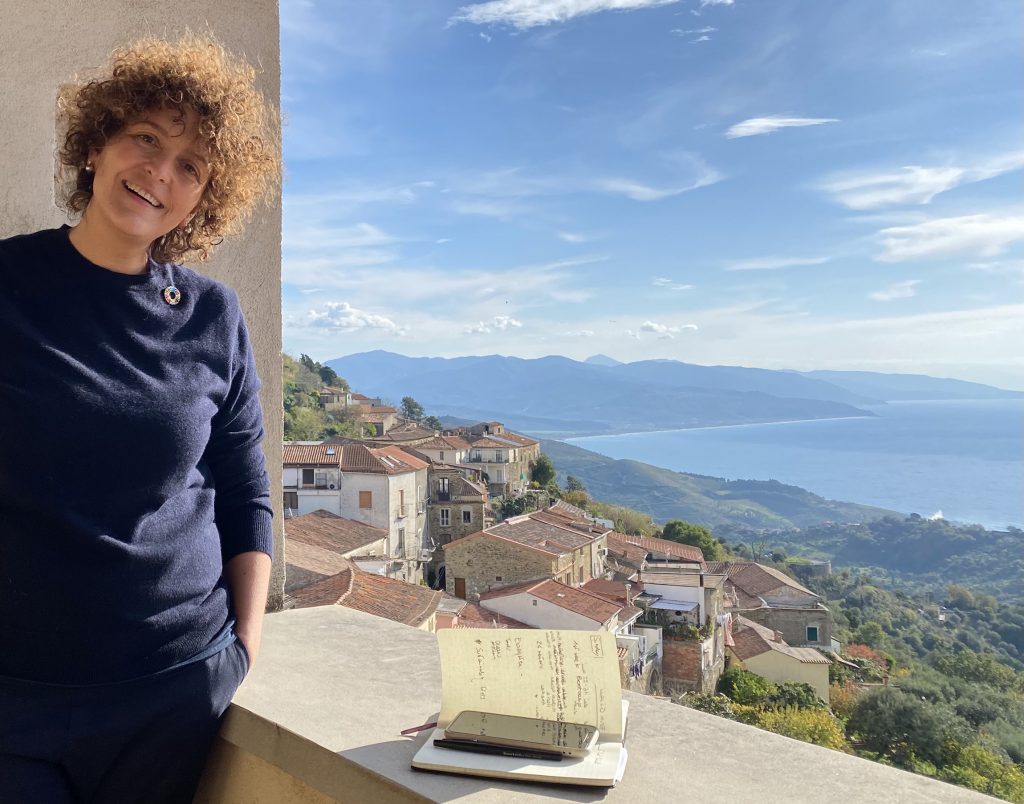
If someone wants to repeat this experience elsewhere, who should they turn to?
To an ingenious entrepreneur-philanthropist who I owe my platform of ideas to: Sara Roversi, a 40-year old from Bologna, president of the Future Food Institute (based in Bologna, Tokyo, Silicon Valley and Pollica). She put together this method – which had already been planted along the Tyrrhenian coast by the ancient Eleatics, the school of Parmenides and Zeno – in 2014 when she updated it and adapted it to the various territories it was then exported to. This work method, developed with Professor Matteo Vignoli, has been further strengthened by applying the design thinking method which is very useful to design, transform and adapt it to the needs of the people. Thanks to ideas like Giro del Mondo in 60 giorni (Around the world in 60 days) and the international Food Innovation Program open to students with a master's degree, Sara and Matteo are inspiring and training a new generation of entrepreneurs, managers and young innovators in the agricultural and food supply chain, levering food innovation to evolve towards sustainability.
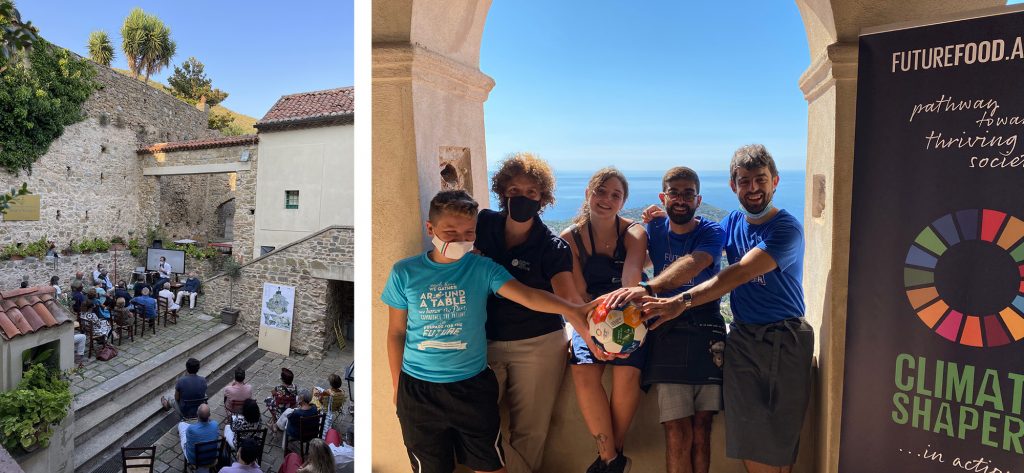
Towards widespread happiness, without having to become mass ascetics, in a mature and balanced ecological perspective far from enthusiastic optimisms and catastrophic pessimisms. That's what I was intimately hoping for, remembering the poem IF by Rudyard Kipling, written for a boy who would have been a grown man in the year 2000 (Airone, August 1989) and as Stefano Bartolini, economist of the University of Siena, reminds us in his book “Ecologia della felicità” (The Ecology of Happiness) (Aboca).
Precisely. By focusing on schools, youths, women, all of which are decisive in this transition due to their nature and culture. Women stand for care, and we ourselves are committed to taking care of ourselves, of others and of Mother Earth.
This interview is part of a series that will end up in the new book by Salvatore Giannella (writer, journalist and former director of L'Europeo and Airone) written in collaboration with Valcucine, which will be published in 2022.
Photo credit cover: Pawel Czerwinski
LATEST POSTS


